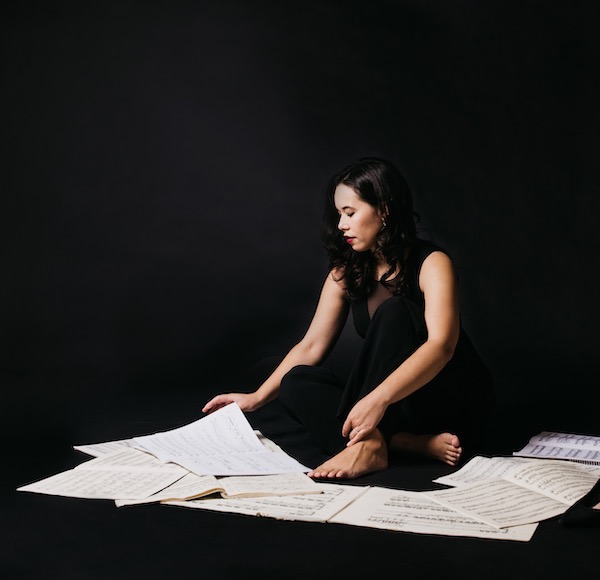With feeling and insight, a pianist gets to the heart of Copland

The draw of pianist Emiko Edwards’ performance Monday evening in the Bruno Walter Auditorium at the New York Public Library for the Performing Arts was not just an all-Copland program, but the chance to hear something rare and unusual—a sketch discovered in the library’s Agnes de Mille archives. That five-page fragment—of which Edwards played three—from an early version of the ballet Rodeo, turned out to be a modest pleasure but the least consequential element of a fine concert.
Opening the concert with Copland’s Piano Sonata and closing it with the Piano Variations, Edwards showed herself a strong, intelligent musician. Intertwined with these big pieces, she played shorter works, including the sketch, that showed she was a lyrical, sensitive musician too. One has rarely heard a pianist bring out so many of the nuances latent in Copland’s piano music.
The two sides of the program essentially split between songs and sonatas. Edwards opened with “In Evening Air,” an excerpt from the soundtrack to the World War Two propaganda film The Cummington Story. It was an evocative performance and an ideal distillation of Copland’s American sound: short phrases and harmonies in blocks that cantilever to wide open, far-reaching destinations. The feeling was that unique Copland blend of optimism, tragedy, and solace.
That, as Edwards pointed out in a brief introduction to the audience, was also the journey of the Piano Sonata. Edwards’ playing of the sonata was an excellent display of shifting through the juxtaposition of disparate moods within a work, while shaping the emphasis on each over the whole form. She moved easily from sheer strength and chiseled articulation, a dexterous, ringing sound in the fast music, and a streamlined elegance throughout. The sonata is one of the best examples of Copland’s pathos-free tenderness, a self-knowing firmness that opens into gentleness. The final movement had a superb feeling that was both deep and questing, tragedy producing determination.
The last piece before intermission was the untitled sketch, which turned out to be a preliminary version of the “Saturday Night Waltz.” Preliminary meant inferior, a version that Copland would later refine so it had firmer and more straightforward harmonies and rhythms. The sketch was a curiosity but didn’t offer any insights.
The next set of songs came after intermission, the Four Piano Blues. These aren’t really blues but instrumental theater-type songs, with an improvisatory feeling that dips into vocal and dance-like gestures embedded from the experience of Rodgers and Hart, Sondheim, and others. Edwards showed she understood all these details, never trying to swing the music as many have awkwardly done, and instead playing these as if there was a singer inside the keys.
Edwards finished with a fine performance of the great Piano Variations. She used a Leonard Bernstein quip to joke with the audience, how Bernstein claimed he used to break up parties in Boston by playing the piece. Nearly 100 years after it’s composition, it’s hard to hear anything but an invigorating, granitic sense, music that grabs the attention and clarifies the mind with its solidity and sense of purpose. The pianist’s thinking was again excellent, every note showing the listener the elements of the basic, opening idea, and how Copland spun out a fascinating musical journey.
The brief encore was one more song: “Down A Country Lane,” his delicate, lovely piano piece for students. This was one last exceptional meeting between composer and musician.